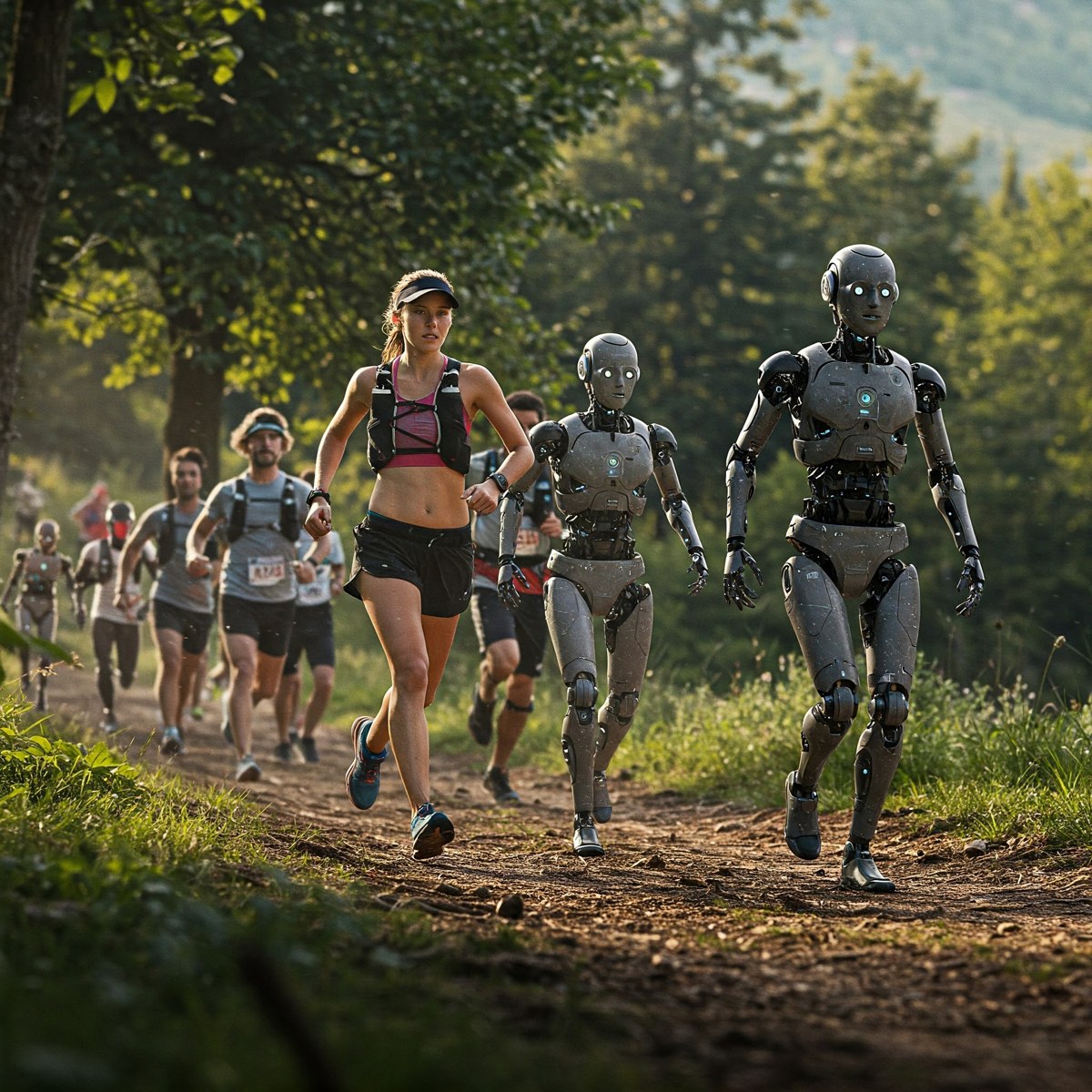Humans may be born to run, but can they be outdone at just that? We shall soon see at the 2025 Beijing E-Town Half Marathon, on April 13, which will coincide with the world’s first humanoid robot half marathon.
[Update, April 15: The event was postponed until April 19 due to inclement weather on April 13.]
People have enjoyed varying degrees of success racing ultramarathon distances against horses since the 1800s. Similarly, the jury is still out in folklore on whether John Henry’s race to manually drill a hole with two 10-pound hammers faster than a steam-powered drill was also a success. As the legend goes, Henry won the race but later died of exhaustion.
Perhaps more relevant for the digital age and for those of us who live in existential fear of artificial intelligence and robots taking over our lives, I urge you to pay extra close attention to the next great bellwether in the story of supposed human superiority: the human versus robot half marathon.
At the Beijing E-Town Half Marathon, the human and robot races will take place at the same time, setting the stage for a dramatic showdown between roughly 20 humanoid robots and their human competitors. More than just bragging rights for an entire species are on the line. The race offers cash prizes with up to 5,000 yuan ($690) payout. While likely only for the robot competitors, category awards are also up for grabs for best endurance, best popularity, best gait, best creative form, and others. Cue video of Monty Python’s Ministry of Silly Walks.
Could robots actually beat humans in this race? Recent demonstrations suggest that while humanoid robots aren’t likely to win the race outright, they’re likely to best more than a few human competitors given the race’s generous 3.5-hour cutoff time. It’s notable that the challenge isn’t a robot running on a treadmill or across a warehouse floor. Like their human competitors, the robots will need to navigate the course as well as fellow competitors, although humans and robots will be separated on the same course. Though humans are still likely to come out on top in a half marathon, how long might that stay true? A few years? A decade? Longer?
Even if the humanoid robots ultimately defeat the actual humans on the course in Beijing, would the robots’ potential technological superiority be apparent in iconic trail races? Consider robots racing on wild mountainous terrain with vast temperature swings and variable conditions — imagine Kilian Jornet dashing around a fallen robot on the muddy descents at the Zegama Marathon or Courtney Dauwalter leaving an android behind as it fails to scramble up the scree-covered slopes on the way to Grant-Swamp Pass at the Hardrock 100. On the other hand, the robots won’t have to worry about an upset stomach, ion breaks, or simply losing the will to continue.

We’ve probably got some time before robots are besting us on the trails. Image generated in Gemini by Bryon Powell.
Either way, the next time you are hiking up a steep climb and someone exclaims, “You’re a machine!” it might be time to thoughtfully consider whether this is a compliment or a subtle dig. Surely, the outcome of the 2025 Beijing E-Town Half Marathon will impact this narrative for years to come.
Call for Comments
- What areas of running do you think a robot could excel in?
- Where do you think humans would still have an edge?

